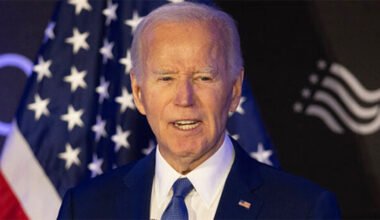In a significant escalation of trade tensions, Hong Kong Post has announced the suspension of all parcel services containing goods to the United States.
This decision comes in direct response to new U.S. tariff measures that eliminate duty-free treatment for low-value shipments from Hong Kong, effective May 2.
Details of the Hong Kong Suspension
Effective immediately, Hong Kong Post has ceased accepting sea mail parcels destined for the U.S. Airmail services for goods will continue until April 27, after which they will also be suspended. Only mail containing documents will remain unaffected by this change. The postal service has stated it will not collect tariffs on behalf of the U.S., criticizing the new measures as “unreasonable” and “bullying“.

U.S. Tariff Changes Shake Up Global Shipping
New Tariff Policy Ends “De Minimis” Exemption
Beginning May 2, the U.S. government will eliminate the “de minimis” exemption, which previously allowed goods valued under $800 to enter the country tariff-free. Under the new policy, these shipments will be subject to a steep 120% tariff. Additional postal fees will rise to $100 per item between May 2 and June 1, and to $200 per item thereafter. The move is part of a broader strategy to curb the flow of low-cost imports, particularly from Hong Kong and mainland China.
Impact on Hong Kong Trade and Consumers
The new tariffs are expected to hit small businesses and consumers in Hong Kong especially hard. Many rely on low-cost, cross-border shipping to sustain their operations and keep prices competitive. The sharp increase in costs and potential delays could disrupt e-commerce supply chains and drive up prices for consumers. The change also highlights the growing strain in global trade relations and hints at possible retaliatory actions.
Hong Kong Post Suspends Shipments to the U.S.
In response, Hong Kong Post has suspended all goods shipments to the United States, citing the impracticality of navigating the new tariffs and fees. The move underscores the rising tension in U.S.-China trade policy and the mounting pressure on international postal systems caught in the middle of political and economic shifts.
Backlash from Business Owners and Consumers
The reaction from small business owners on both sides of the Pacific has been swift and concerned. Entrepreneurs who rely on platforms like Etsy and eBay say the changes threaten their livelihoods. “It’s not just about shipping—it’s about staying afloat,” said one Hong Kong-based artisan who exports handmade goods to the U.S. The sentiment is echoed by many who fear that the new regulations could upend the affordability and reliability that global small businesses depend on.

Consumers Feel the Pressure
Consumers on both sides of the globe are already feeling the strain. Social media is flooded with frustration from American shoppers facing delayed deliveries to Hong Kong residents anxious about losing access to the U.S. market. Analysts say the disruption may push businesses to seek alternative shipping providers, but rising costs appear inevitable.
The public outcry highlights a deeper issue: the growing disconnect between high-level trade policies and their real-world consequences. While governments strategize on the global stage, it’s often the smallest players—independent sellers, e-commerce customers, and everyday entrepreneurs—who end up paying the price.







